Special report: An immigration crisis on Britain’s doorstep in Calais
Armed with nothing more than the hope of building a life in the UK, hundreds of refugees from Syria, Egypt, and other war-torn countries have risked their lives to reach the other side of the Channel
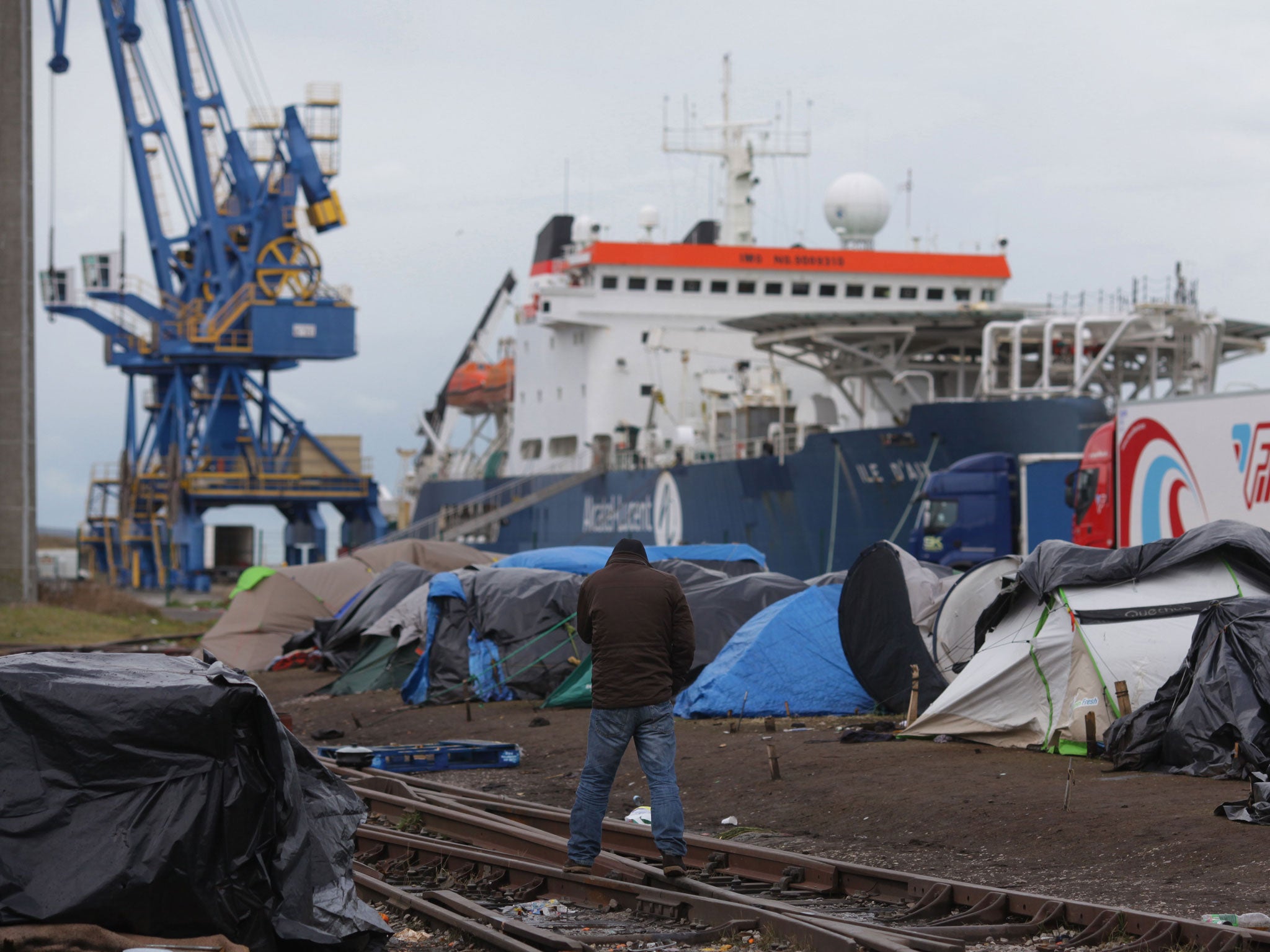
For eight weeks, Yemane Gebrenegus travelled across desert and sea to escape a rapacious dictatorship. Drowning in debt, he survived the Mediterranean in a sinking boat and slowly begged and borrowed his way to Calais. It was here, within sight of his dream of England, that his 22-year-old heart gave out.
While attempting once more try his luck and sneak into a truck bound for Britain in December, he collapsed in cardiac arrest. The friends who were with him said he was dead before he hit the ground outside France’s busiest ferry port.
Back home in a village near the Eritrean capital of Asmara, his elderly mother received two pieces of news - that her only child was no more and that if she wanted the dignity of burying his remains, it would cost 4,000 euros (£3,300) to repatriate his body.
The undertaker’s fee to receive her son’s corpse in a zinc coffin was just $500 less than the $6,000 Yemane’s extended family had paid to people smugglers to send him to a new life in London.
Every day, his cousins already in England had called him to ask for news. Instead, for another eight weeks, Yemane remained in a French morgue while charities and Eritrean ex-pats raised the funds to finally send a mother back her son last week.
Standing next to his sodden tent beneath a rubbish-strewn rail bridge barely 200 metres from the wedding cake architecture of Calais’s famous town hall, Samuer Futsum, 26, remembered his best friend. “Yemane had a problem with his heart. He went to the hospital and the doctors said he must not sleep outside. But where else could he go? We are not people who can walk into a hotel. He slept in the tent and got more ill.
“On the day he died, we were talking in the street and he fell down. He was dead like that. He wanted what the rest of us do. To study, to work, to have a life. But here in Calais, there is no life. I spoke to his mother, I told her. She cried. She cried very hard.”
Stories of death are not difficult to find among the 500 to 600 migrants gathered in Calais in the state of fetid limbo that has gripped this port for more than a decade. The tides of war, persecution and economic desperation each year deposit thousands on the English Channel’s edge to play a game of cat and mouse with an Anglo-French confection of rigid border controls, putrid living conditions and random arrest designed to deter their presence.
Where a few years ago there were Iraqis and Congolese fleeing terror and upheaval, there are now Syrians and Egyptians. But as ever, the asylum seekers of Calais are at the very bottom of the United Kingdom’s immigration ladder, battling to reach a country where even the legitimate migrants needed to fuel a fragile economy attract a chilly opprobrium.
As Abdullah, a 36-year-old Afghan entering his seventh month of waiting put it: “England is the house. We are not even in the toilet. We are in the sewer outside.”
But 12 years after the French authorities closed the former Channel Tunnel warehouse at Sangatte which became a Red Cross camp for UK-bound migrants, the plight of the “sans papiers” or “no documents” is again making its way up the political agenda.
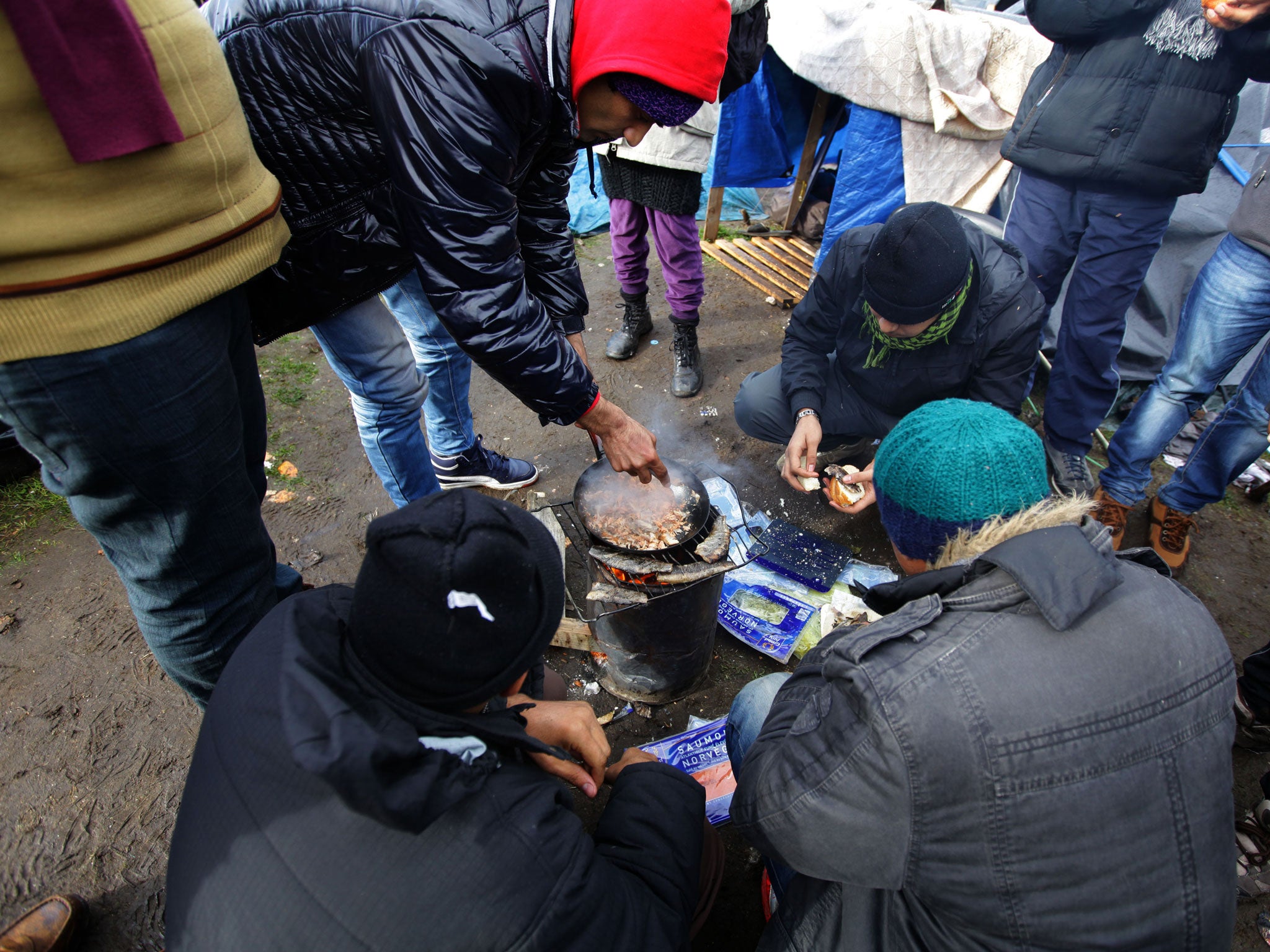
The French government has asked Britain to consider a renegotiation of the agreement which led to the closure of Sangatte and share more of the financial and policing “burden” caused by the migrants. The French interior minister, Manuel Valls, said last month that the situation in Calais had reached an “impasse”. The response from his British opposite, Home Secretary Theresa May, has been a polite restatement of the status quo.
A Home Office spokeswoman said tonight: “The conditions of any camps in France and the policing of them is the responsibility of the French authorities. If individuals have a genuine need of protection they should claim asylum in the first safe country they reach.”
Indeed, the real passion and anger is among those with the least power and the most to lose.
For two consecutive weeks, the streets of Calais have been the scene of demonstrations by angry migrants waving placards proclaiming “Freedom to move”, “Liberté” and “No border, no nation - stop deportation”
The list of grievances of the marchers - Afghans, Kurds, Sudanese, Eritreans, Egyptians, Syrians - is long and multifarious, from an unrealistic demand for Britain to open its border to a plea for the “basic dignity” afforded by washing facilities and an end to what they say is harassment by French police.
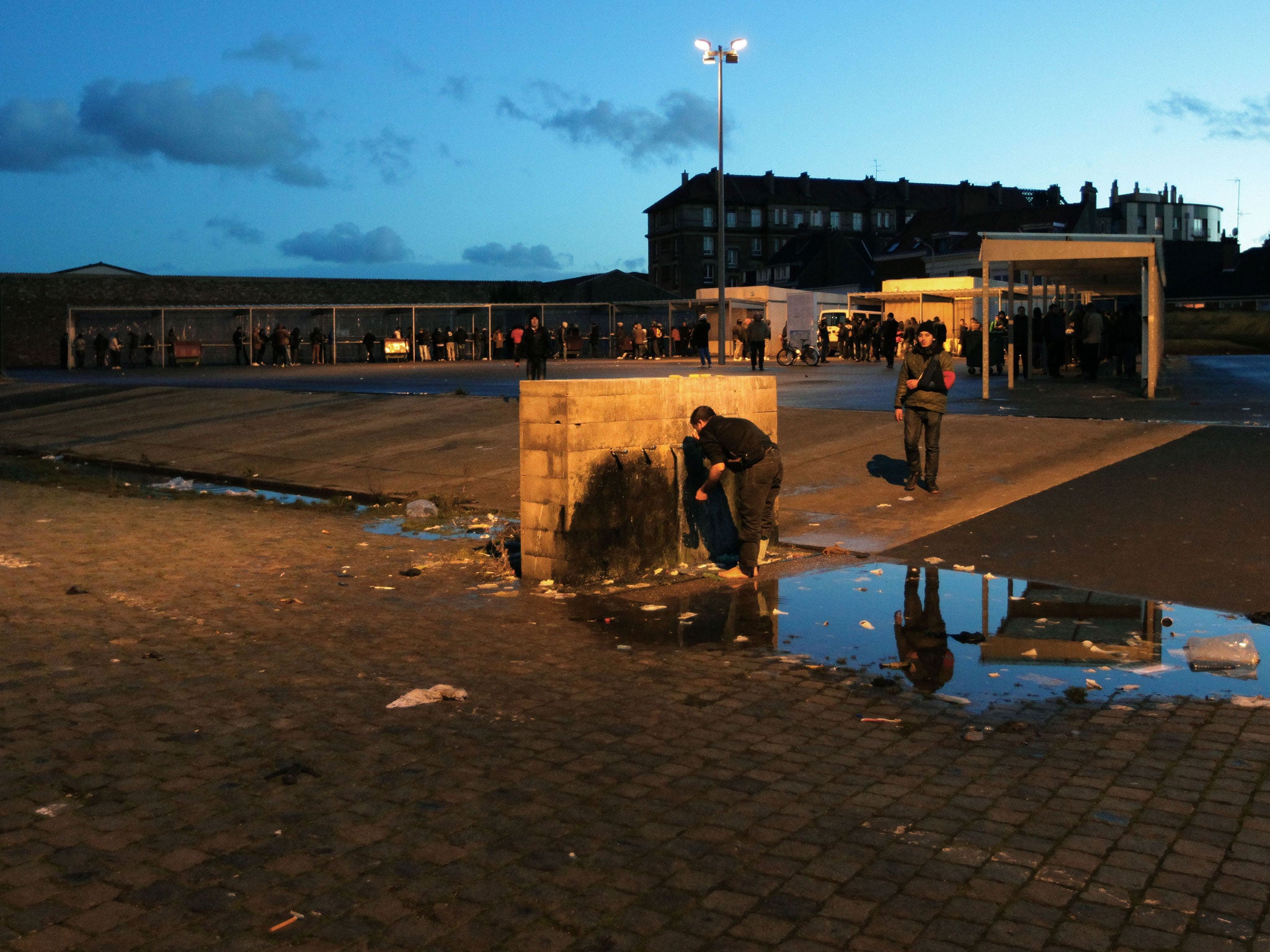
Here, within sight of the Dover-bound ferries carrying Home Counties booze cruisers to and fro and loading trucks bearing the flat-pack furniture and polytunnel-grown vegetables needed to keep Britain ticking over, life is precarious and verging on the primeval.
In the last ten days, two of their number have died, horribly.
One, an Iranian in his 30s, was murdered with a bullet to the throat in one of Calais’s lorry parks. French police, who initially arrested the friend of the man who reported the killing, are treating it as a dispute between the mafia of fixers who charge 1,000 euros for a “guaranteed” passage to Britain which all too often turns out to be nothing of the sort.
The second was a 17-year-old boy who, along with two others, had climbed into a lorry hoping it was heading towards Britain. When they found it was heading in the opposite direction, the truck stopped and the driver ordered the trio off, driving away as they jumped clear. The teenager fell into the carriageway, landing on his head before is body was crushed by an oncoming truck. The lorry did not stop.
These latest casualties join a list of 21 other reported deaths of migrants in Calais in the last four years, including Yemane and another Eritrean, Robiel Habtom, who drowned in the chilly waters of the Calais dock in October as he tried, using two empty water bottles as floats, to swim 150 metres past the car ferries to the loading ramp. His bloated body was fished out a month later.
In recent months, the muncipal authorities in Calais, led by town’s centre right mayor Natacha Bouchart, who is up for re-election next month and has conspicuously refused to discuss the “migrant theme” during campaigning for fear, she insists, of playing into the hands of extremists, have ordered the eviction of migrant from squats across the town in time for winter.
The result is a mushrooming of new tented citadels, reinforced against the elements by plastic sheets, tarpaulins, wooden pallets and railway line ballast, across Calais that would not look out of place in refugee camps from Syria to Chad. The camps are broken up by ethnicity - the Eritreans behind the Hotel de Ville, the Kurds in the dunes by the Hover Port.
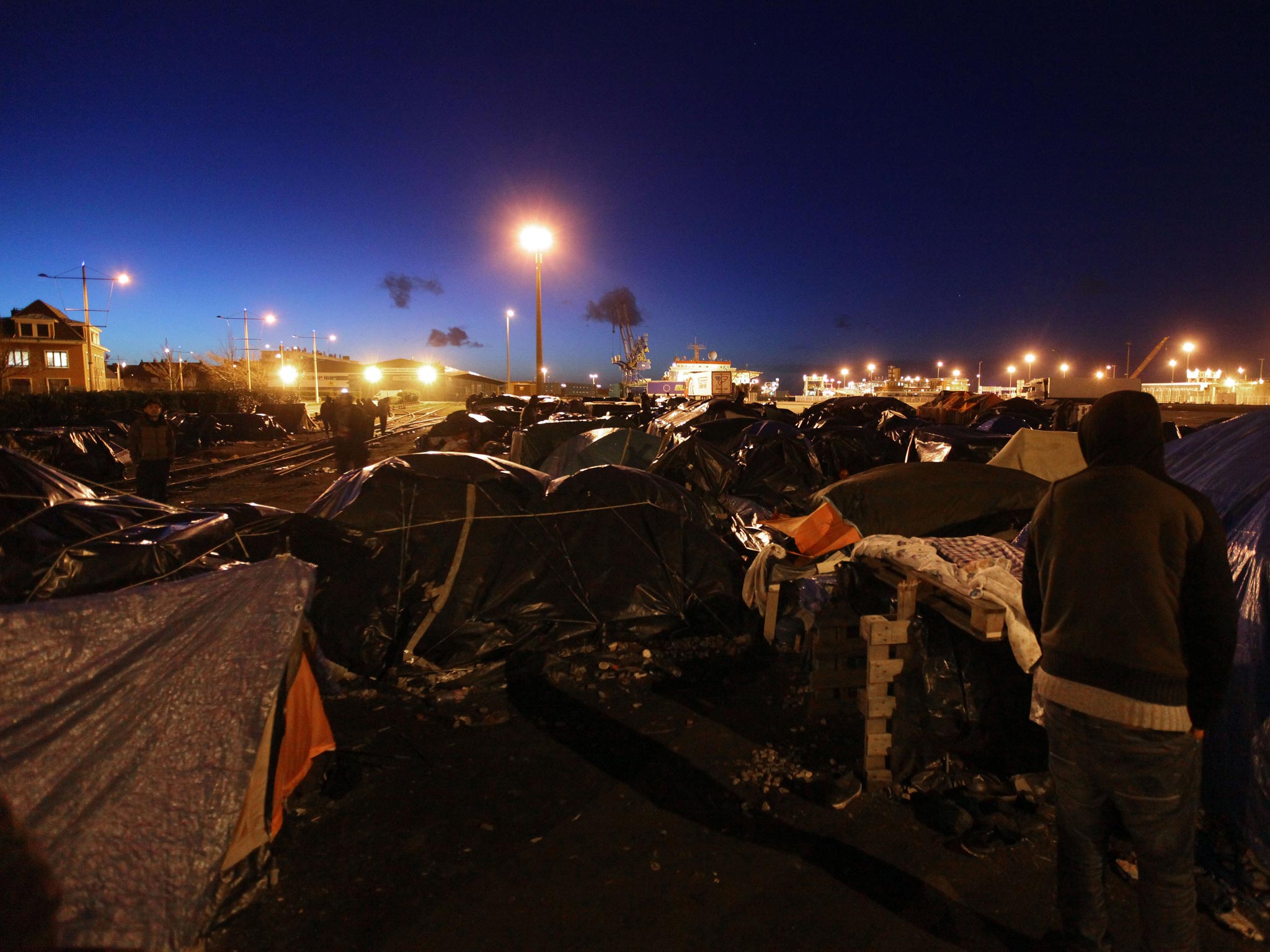
The largest of these - “the Afghan Camp” - sits on waste ground next the town’s feeding station where a meal is served once a day by charity groups who rely on free donations from supermarkets.
The soil is chewed up by rain into a soupy mud. Beyond the tide mark of detritus from water bottles to shoes which marks the camp’s border, three portable toilets offer the only hygiene facilities for about 200 men since the sole shower block for migrants was burnt down in suspicious circumstances last month. The stench of human waste hangs in the air. It is masked only by the acrid smoke produced by the clothes of departed migrants, which are burned gratefully by those who arrive, beanie hats pulled incongruously over their heads, to take their places.
Add to this what the migrants insist are daily document checks by police, including the famously muscular CRS anti-riot force, and the resulting climate is both wretched and fearful.
Few sans papiers want to apply for asylum in France, pointing out that it bars them from doing so in Britain and those who have all too often living back in the camps anyway.
Attaullah Areen, a 19-year-old Afghan from near Kabul, said: “Who would want to live like this? We are treated little better than dogs. The police come at 6am or 10pm. We all know to stay inside the tents. They say, ‘come out, we have tea, coffee’. But we know the moment you put your head outside, they will pull you out and send you back to Italy. Every day, four or five go back there. They are rough.”
The French authorities strongly deny any use of excess force. Alain Gerard, the sub-prefect of Calais, said earlier this month: “We have received complaints from no-one. No evidence of violence has been established and such claims must be treated with a lot of caution.”
Campaigners on both sides of the Channel say the time has come for both Paris and London to intervene to unravel the immigration knot of Calais and eradicate the squalor to which migrants are consigned.
Ben Bano, of Kent-based refugee group Seeking Sanctuary, said: “It has long been in the interests of the British and French governments for nothing much to happen in Calais. The only losers are the asylum seekers and their families. It is really time for both sides to ensure there are some basic and decent living conditions. For too long they have allowed ‘basic’ to mean ‘squalid’.”
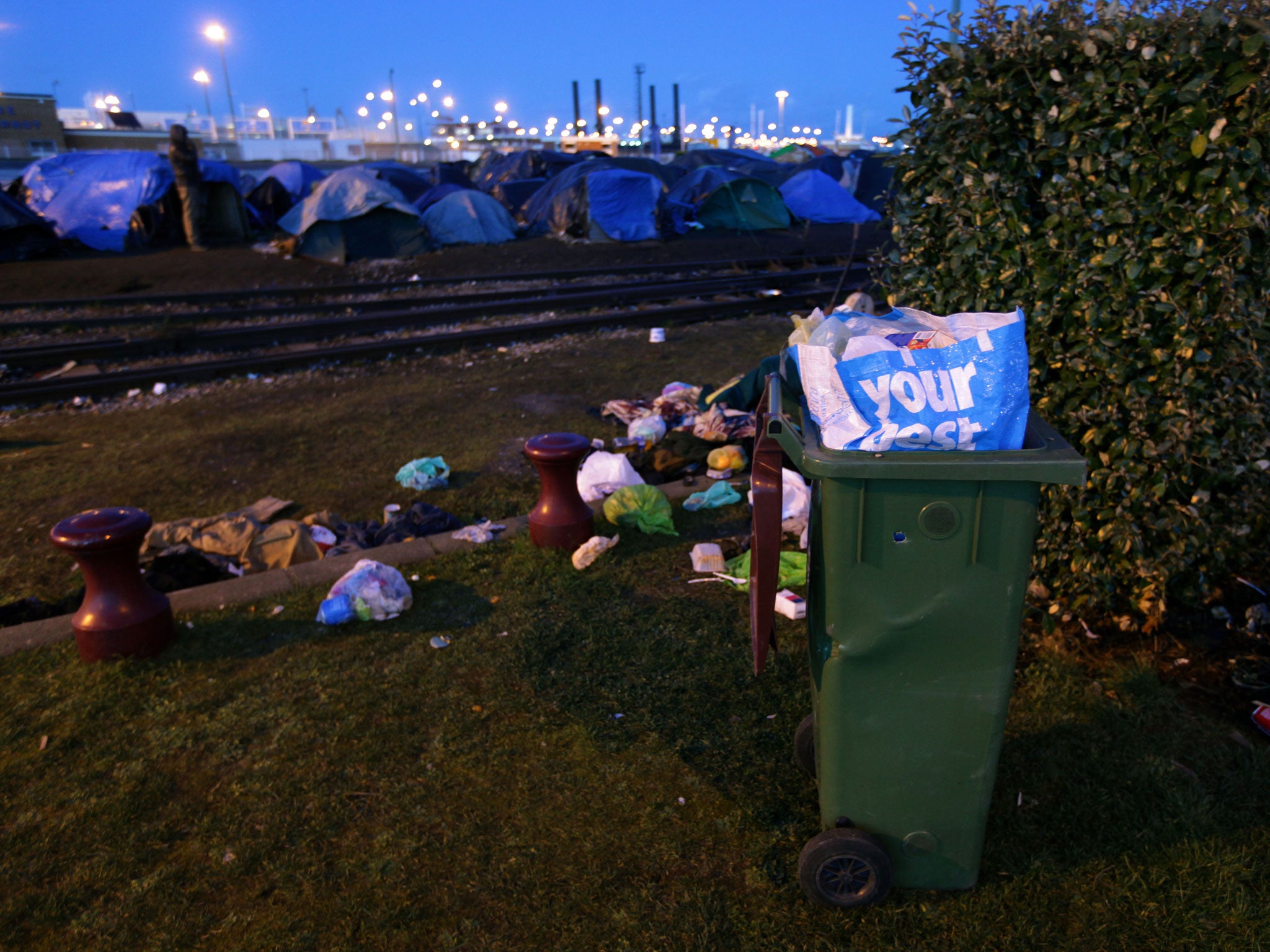
And yet, amid the pitiless social Darwinism of this twilight existence of lorry jumping and endless waiting for a ticket to a questionable British El Dorado, there is a grim determination and strange optimism. While the politicians haggle, the migrants still make it here and beyond.
There are those like Ali Khavari, a 22-year-old Hazara Afghan, who arrived at Calais four years ago and eventually gave up the wait. He applied for asylum in France, is training to be a gas fitter and plumber, and was last night due to fight his first bout as a semi-professional boxer as a proud member of town’s boxing club.
Speaking at a raucous weigh-in ahead of the fight, he told The Independent: “I frequently go down to the camp and talk to people. I tell them there is a future. It can be a future here or elsewhere but you have to believe in a future, or you truly have nothing.”
Despite the fences and massed ranks of carbon dioxide detectors and sniffer dogs at Calais docks, a steady trickle of migrants does make it through to Dover, Folkestone and beyond. The experiences of Yemane and others are no deterrent - not one of the men, teenagers and handful of women met by The Independent had any doubt that eventually they would reach Britain.
Among them was Hosam Latif, a 29-year-old Syrian business student from the decimated city of Aleppo.
Smartly dressed and speaking impeccable English, he opened his mobile phone and showed pictures he had taken of decapitated corpses, broken bodies and pulverised homes in his hometown.
His voice catching with emotion, he said: “I am one of the lucky ones. I am here. Not there. Look at what it’s like. I have to succeed, I have to study for this to make any sense. Most people here have seen death to get here. I ask only for the chance to make a contribution.”
Charlie Elphicke, the Conservative MP for Dover, said the enforcement of EU regulations concerning asylum seeking around Calais remained a matter for the French authorities. But he said there was a case for stronger action against people smugglers who profit massively from the trade bringing people to the port.
He said: "I don't think the people of Dover or Kent would welcome a new Sangatte. The real issue here is the people traffickers, not just in Europe but beyond, who profit by selling a false dream of a new life in Europe. They are the real villains and their needs to be wider international co-operation to break these gangs."
Join our commenting forum
Join thought-provoking conversations, follow other Independent readers and see their replies
0Comments